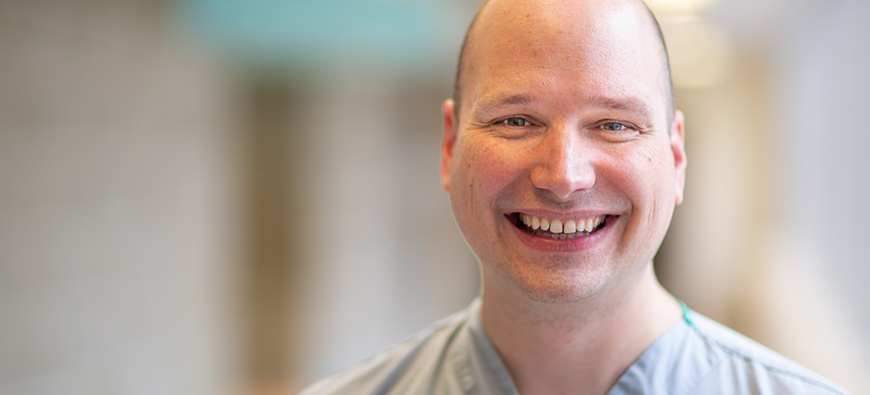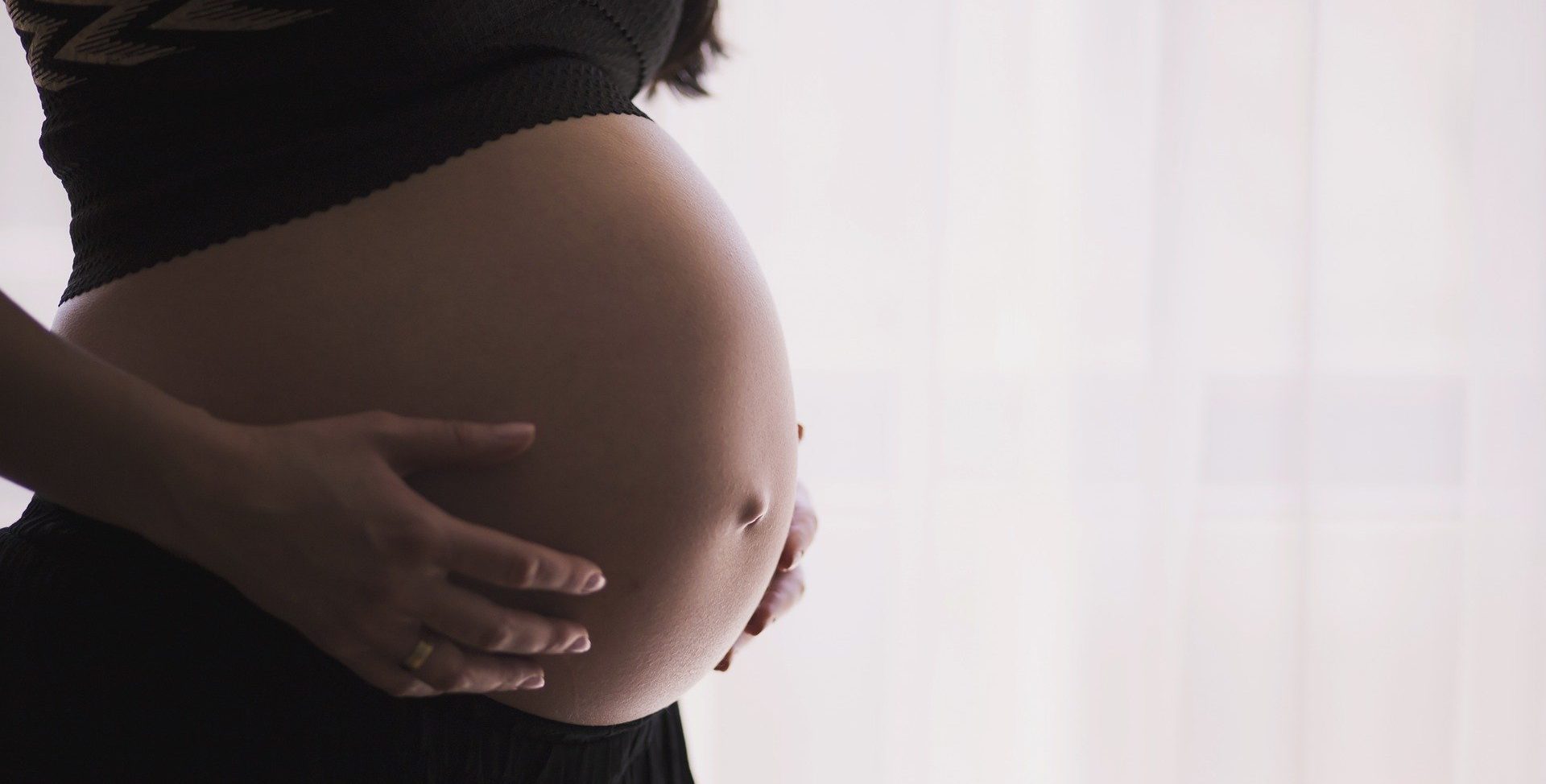
Pregnant? The time is now to get your COVID vaccine.
This story reflects the information available at the time of publishing. Guidelines may change. Please visit the City of Hamilton’s website for the latest information.
We tell pregnant people to be careful of everything they put in their bodies, from alcohol to sushi to soft cheese. And then when the COVID-19 vaccine first came out, it hasn’t specifically been tested on pregnant people so there was a delay in offering it to them. Of course people are hesitant. But the vaccine is key in protecting people against severe COVID-19, especially people who are pregnant and at greater risk of more serious disease.
The US Centre for Disease Control recently declared urgency for pregnant people to get vaccinated especially during the current Delta surge. But some are still hesitant. Dr. Tamar Packer, Chief of Family Medicine at Hamilton Health Sciences and Dr. Dustin Costescu, obstetrician/gynecologist at Hamilton Health Sciences answer some frequently asked questions to help ease some of the anxiety surrounding the COVID-19 vaccine in people of child-bearing age.
Is the vaccine safe if I am pregnant and/or breastfeeding?

Dr. Tammy Packer
Dr. Packer: The vaccine is safe, as endorsed by Health Canada, the Centres for Disease Control and Prevention, the U.S. Food and Drug Administration, The Society of Obstetricians and Gynaecologists of Canada (SOGC), the American College of Obstetrics and Gynecology (ACOG), and the National Advisory Committee on Immunization (NACI). We always have to comment on safety in the context of choosing to become vaccinated versus getting infected with COVID. The potential side effects of the vaccine outweigh the effects of COVID.
Dr. Costescu: It is normal to be concerned about the safety of any medication in pregnancy or when breastfeeding, and vaccination is no exception. There are now hundreds of thousands of pregnant, breastfeeding, and recently pregnant individuals globally who have been vaccinated against COVID-19. Many studies that include tens of thousands of patients and pregnancies have shown that COVID vaccines are safe, and do not increase the risk of any complications of childbirth or increase the risk of pregnancy loss.

Dr. Dustin Costescu
The alternative to not being vaccinated is getting COVID-19.
COVID-19 infection increases the risk of pregnancy loss (miscarriage or stillbirth), premature birth, blood pressure complications of pregnancy, and a higher risk of severe COVID. COVID infection while pregnant increases the risk of hospital admission, critical care admission and mechanical ventilation compared to folks with COVID who are NOT pregnant. COVID infection increases the risk of dying in childbirth by 22 times compared to not getting infected.
Is the vaccine safe if I am planning on getting pregnant? Will it affect my fertility?
Dr. Packer: The vaccine is safe for all those who are trying to become pregnant. There was an observation that individuals who receive the vaccine sometimes skip a period or perhaps have their period delayed by a matter of weeks and that seems to resolve within the next month’s cycle. That was the seed of the initial concern. It’s been well studied and as we all know, there’s a major surge in COVID babies (conceived during the last 18 months) and we’re seeing that surge continue in those who’ve been vaccinated.
Dr. Costescu: There are many ways to assess fertility after exposure to medications. One common way is to measure hormones that indicate “ovarian reserve” or the number of eggs that are available. Studies in vaccinated cohorts show that there is no reduction in ovarian reserve. Similarly, there are no increased risks of pregnancy loss in vaccinated patients who then get pregnant. There is emerging evidence that COVID-19 infection may affect fertility in males. So if fertility is a concern, everyone should get vaccinated.
How can I trust that the vaccine is safe for me? Have there been adequate studies?
Dr. Packer: Because of the magnitude of a global pandemic — although there hasn’t been a long timeline — we have submitted millions and millions of people to studies. There is actually evidence acquired in a very short time. There was research leading to the evolution of MRNA vaccines that was in progress for many years and they were just waiting for the next virus to apply those research learnings.
People can look at SOGC and NACI for very clear guidelines on how best to care for yourself in the face of COVID when you’re either attempting to conceive, pregnant or breastfeeding.
Dr. Costescu: From the beginning of the COVID-19 pandemic, there has been a push to collect data on pregnancy and outcomes from infection and vaccination. Setting up a database and watching people forward in time is one of the best ways to study populations, as you are less likely to have inaccurate results. It is rare to get data on thousands of pregnancies, but we do have that for COVID-19 – making it one of the most studied diseases in pregnant populations.
Are you hearing from patients in their 20s and 30s that their vaccine hesitancy is a result of pregnancy/fertility concerns?
Dr. Packer: Vaccine uptake in people 19-39, regardless of gender, is not optimal. The concerns about fertility are expressed not infrequently, but I think there are societal concerns in that age demographic. What we know about that age demographic is there is a natural sense of immortality, an attitude of, “I’m young, I’m healthy, I’ll be fine.”
Dr. Costescu: Many causes over the years have tried to leverage the fears of infertility and pregnancy loss to generate fear. None have been factually correct. But they plant the seed of doubt. As obstetricians, we always encourage people to take time to optimize their health if they are planning a pregnancy, and vaccines have always been a part of that strategy. We recommend flu shots in pregnancy every year, and we will continue to recommend COVID-19 vaccination. We want to join you on your family’s journey – we would not recommend something that would take that away.
Have we seen an increase in pregnant people with COVID-19 in our hospitals?
Dr. Packer: Hamilton has already cared for several pregnant individuals with severe COVID who have required critical care and assistance with their breathing, and in fact has supported the delivery of babies within our critical care units.
While the rate of COVID in pregnancy is not substantially higher than amongst those who are not pregnant, the effect of COVID can be more severe for several reasons, one being the impact on the lungs with the baby pressing on your diaphragm. Sometimes we need to deliver the baby earlier than planned to balance the risks and well-being of both the pregnant person and the baby. We have seen pregnant people require critical care when in healthy times, we wouldn’t have this.
Is COVID really worse? Why can’t I wait until my baby is born? What are the risks of not getting the vaccine?
Dr. Packer: It’s great if everything goes in your favour, but you can literally die waiting. It’s all about balancing risks. It’s about how to protect yourself and your baby and you’re also protecting your family and your community. Once you deliver, people say they are going to get it, but from a practical perspective, the time is now. What you’re doing for yourself if you’re pregnant is dramatically reducing the likelihood that you end up very sick with COVID potentially in an intensive care unit and sadly, possibly facing death. We have had local cases and deliveries of babies in our intensive care units in this city so this is not something that sits far away. This is something near and dear to us and by taking the vaccine, you’re helping everybody and particularly increasing the odds of well-being for the little one that’s growing inside.
I think that all the questions that were asked about vaccination for COVID have to be looked at from the perspective of, not only is the vaccine safe, but is not having the vaccine safe? If we balance out your odds as a pregnant individual choosing to not vaccinate versus getting the vaccine, it’s absolutely clear that you’re in a far better position by being vaccinated. We do have two years of evidence on millions and millions of individuals worldwide that speak to no concerns whatsoever with pregnancy. Sadly, we have a whole lot of evidence both locally and internationally for the devastating impact COVID can have on pregnant people.
Dr. Costescu: In pregnancy, patients and families are often trying to balance out risks and benefits for themselves and their future children. While it is common for a lot of people to avoid medications in pregnancy (we see a lot of people suffer when they refuse to take medications like acetaminophen or reflux medications), this is one time where vaccination is a win-win for you and the baby. Pregnancy may be the time of greatest risk should you become ill with COVID. COVID-19 infection increases your risk of losing the pregnancy as well, or delivering your baby earlier than if you did not get sick. While there is still benefit to getting vaccination post-pregnancy, the greatest benefit is to get vaccinated now.
What can healthcare providers do to help their patients to get good information and decide to get vaccinated?
Dr. Packer: Part of the challenge is that there’s so much information. There is too much for people to sift through. There is so much contradictory information, both evidence and non-evidence based. We need to be able to point them to trusted sources, such as:
- Provincial Council for Maternal and Child Health
- This is our shot vaccine safety
- Hamilton.ca FAQs
- Ontario.ca vaccine safety
Dr. Costescu: There is a unanimous global agreement that vaccination in pregnancy and prior to pregnancy is safe. There is a lot of information on the internet, so the key is to find information from reputable medical societies.
What would you say to someone who is not yet vaccinated?
Dr. Costescu: I would not say anything. I would listen to their concerns and I would try my best to address them. These are delicate conversations and each story is different. I respect an individual’s choice, but it is my moral duty to ensure their choice is an informed one.
Dr. Packer: You’re a change agent not just for yourself but for everyone else out there. We need to get to 90% vaccinated for Delta so we might be able to emerge from this by next spring. The only thing we can do to halt the emergence of other new variants is to increase vaccination rates.
The vaccine is particularly important right now because Hamilton is a city that has relatively low vaccination rate uptake and we have pockets in our community where a good number of people sadly aren’t vaccinated. If you have the ways and the means to get vaccinated – not only are you helping yourself, you’re helping everybody else around us. The time is now.


